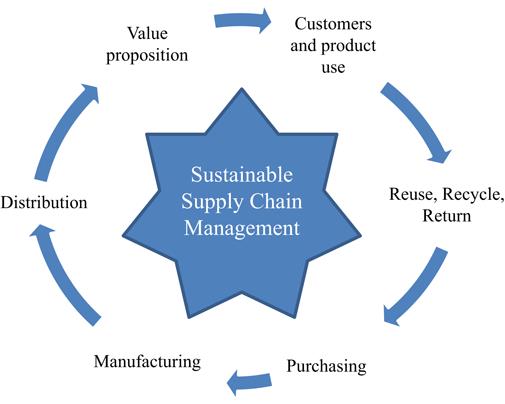Stability in supply-chain management seen worldwide, including Bangladesh, despite covid-19
Summary:
To the surprise of many research scientists, focus on the social issues increased despite the fact that many companies had to retool supply chains and many struggled simply to remain in business in the lockdown. Bangladeshi companies, which had an established Supply chain Management Process, were able to operate profitably during the covid-19 pandemic.
Content:
The objective of the supply chain sustainability is to create, protect and grow long-term environmental, social, and economic value for all stakeholders involved in bringing products and services to market. The study defines supply-chain sustainability as “the management of environmental and social impacts within and across networks consisting of suppliers, manufacturers, distributors, and customers in line with the [United Nations’] Sustainable Development Goals.”
Some 82% of the executives surveyed said the pandemic created a shortage of consumer products around the world and triggered lockdowns but didn’t affect the supply chain sustainability during 2020. Rather the companies maintained their focus on the goals and paid more attention to the social issues like worker welfare and supplier diversity.
About only 9% of the 2400 respondents said their commitments to goals declined in 2020 than in 2019. Most of them are North American and European companies.
The number of the respondents, who kept employee welfare and safety as their priority, rose by 10% from 2019. On the other hand, who kept supplier diversity, equity and inclusion increased 5%.
All the negative and unexpected events that were supposed to impact the companies supply chain actually brought some positive changes for the company. The report of Massachusetts Institute of Technology’s Center for Transportation and Logistics and the Council of Supply Chain Management Professionals said, the number of front line workers, the disproportionate departure of woman workers and the troubles of workers stuck at sea increased the focus on certain goals.
“It was surprising to see the focus on social issues,” said David Correll, a research scientist at the MIT Center for Transportation and Logistics. “The notion of social issues as part of sustainability goals is something we didn’t expect to see generally accepted, but in fact, there was an increase in interest in the respondents.” According to him, many companies that maintained their focus, actually “saw an opportunity to make change while change is possible.”
Although there is a decrease in the attention for issues like climate change mitigation, down 3% from 2019 and supply chain circularity down 5% from 2019.
Mr. Correl further said, “We would have expected that respondents would have framed Covid-19 and the pandemic as something that happened to them and that they, therefore, need a pass from their sustainability goals,” he said. “As it turned out, that isn’t how they framed it. They say it as something that happened to the entire world and that we are all going to do our best to get through it.”
On the other hand, as per the GDP growth data 2021, Bangladesh’s growth rate is 8.2%. The Covid-19 pandemic has suggested that to ensure sustainability and success, the increased focus must be put on understanding supply chain management. It requires way more than to just communicate with the suppliers. It also needs to focus on other social issues and environmental issues.
So, according to the report, the focus on sustainability was not the same around the industry. Large companies were more focused to keep their goals, take care of their workers and keep the other issues in mind. But smaller companies, who have less than 1000 employees said, “they were not engaged before the pandemic and even less so during the crisis likely due to strained financial resources.”
Pic source: Emerald
Article source: The Wall Street Journal, The Financial Express


Leave a Reply